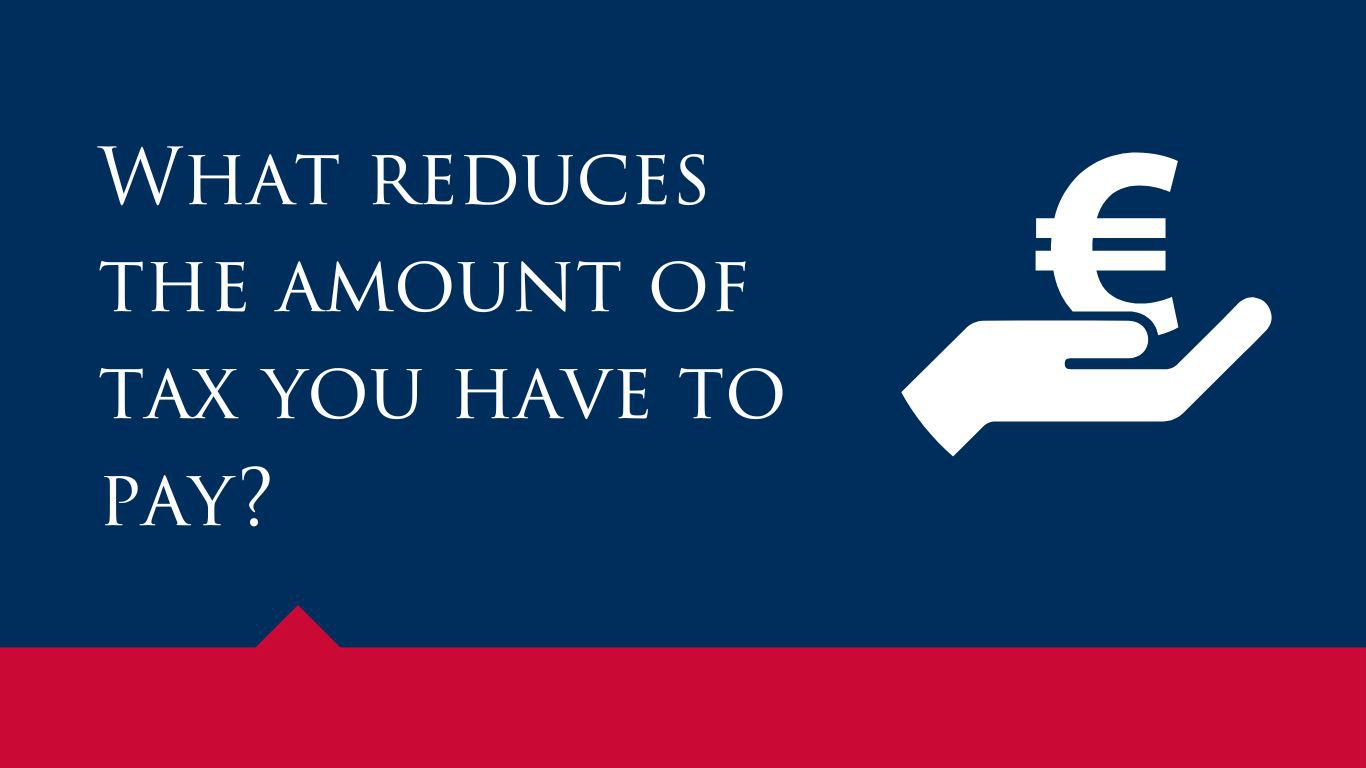When it comes to managing your wealth, tax efficiency is key to preserving and growing your assets. Reducing your tax liability is an important aspect of financial planning, particularly for high-net-worth individuals. Understanding the tax reliefs and strategies available in Ireland can significantly reduce the amount of tax you pay and help you optimise your wealth.
So, what reduces the amount of tax you have to pay? Below, we explore some effective ways to legally reduce your tax burden, ensuring you retain more of your hard-earned wealth.
Maximise Pension Contributions
One of the most effective ways to reduce your taxable income in Ireland is by making the most of pension contributions. Contributions to approved pension schemes, such as Personal Retirement Savings Accounts (PRSA) or Master Trust, qualify for tax relief. The relief is based on your age and annual income, with higher contribution limits for older individuals.
By contributing to your pension fund, you not only secure your retirement but also reduce your current tax liability. The contributions can be deducted from your taxable income, which may lower the amount of income tax you owe.
Claim Tax Relief on Medical Expenses
Another way to reduce your tax bill is by claiming tax relief on certain medical expenses. You can claim back a portion of the cost of medical treatments not covered by insurance. This includes doctor visits, dental treatments, prescription medication, and other healthcare expenses for you or your dependents.
Medical expense relief is available at the standard rate of 20%, and it can be claimed either at the end of the tax year or through PAYE anytime during the year.
Utilise Capital Gains Tax (CGT) Exemptions
Capital Gains Tax (CGT) is charged on the profit made from the sale of certain assets, such as property or shares. However, there are several exemptions and reliefs that can reduce the amount of CGT you have to pay.
For example, an annual exemption of €1,270 applies to each individual, allowing you to make gains up to this amount tax-free. Additionally, if you sell your primary residence, you may be exempt from CGT under the Principal Private Residence Relief. Understanding how to use these exemptions strategically can save you a substantial amount in tax.
Leverage Business Relief and Entrepreneur Relief
For business owners and entrepreneurs, there are specific reliefs that reduce tax liability on the sale of business assets. Business Relief allows for a significant reduction in the value of certain business assets when calculating inheritance or gift tax (Capital Acquisitions Tax).
Similarly, Entrepreneur Relief provides a reduced rate of CGT (10%) on the sale of qualifying business assets up to €1 million. Both reliefs are designed to support entrepreneurs and business succession planning, while reducing the tax burden associated with selling or transferring a business.
Plan for Inheritance and Gift Tax (CAT) Efficiently
Planning ahead for Capital Acquisitions Tax (CAT), also known as inheritance or gift tax, is essential for wealth transfer. The tax-free thresholds for receiving gifts or inheritances from parents or other family members are subject to limits, and amounts above these thresholds are taxed at 33%.
However, there are exemptions that can reduce CAT liability, such as the small gift exemption, which allows you to give or receive up to €3,000 per year from any individual tax-free. By strategically gifting assets over time, you can significantly reduce the CAT burden on your beneficiaries.
Utilise Tax Credits and Reliefs for Families
There are various tax credits available to families that can reduce your overall tax liability. For example, if you are married or in a civil partnership, the marriage tax credit may apply. Additionally, credits like the Home Carer Tax Credit can provide tax relief if one spouse is caring for children or dependents at home.
By taking advantage of these family-related tax credits, you can lower the amount of tax you need to pay annually.
Invest in Tax-Efficient Schemes
Finally, investing in tax-efficient schemes such as the Employment and Investment Incentive Scheme (EIIS) can provide significant tax relief. This scheme encourages investment in Irish businesses by offering tax incentives to individuals, allowing you to offset a portion of your income tax.
But you need think very carefully and get advice as your capital is at risk with these schemes and you could lose some or all of your money.
Final Thoughts
Reducing your tax liability requires a combination of knowledge, planning, and the right financial advice. By leveraging available tax reliefs, credits, and exemptions, you can legally reduce the amount of tax you have to pay while still achieving your financial goals. Consulting with a wealth manager or tax advisor is essential to ensuring that your tax strategy is optimised for your unique financial situation.
If you’d like to learn more about how you can reduce your tax burden while preserving your wealth, get in touch with us today.
Disclaimer
Metis Ireland Financial Planning Ltd t/a Metis Ireland is regulated by the Central Bank of Ireland.
All content provided in these blog posts is intended for information purposes only and should not be interpreted as financial advice. You should always engage the services of a fully qualified financial adviser before entering any financial contract. Metis Ireland Financial Planning Ltd t/a Metis Ireland will not be held responsible for any actions taken as a result of reading these blog posts.




